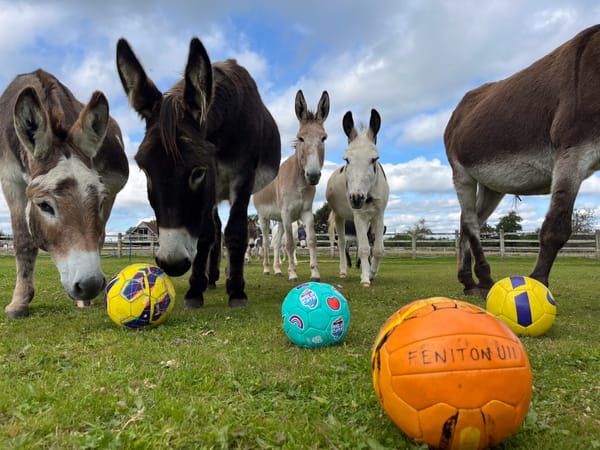Good news for millions of US kids as fed-up parent politicians push for legal ban on social media

By Jill Dando News
This could be really good news for the mental health of millions of America children with other nations queuing up to copy their model.
Legislation being introduced this month by four senators in America is aiming to ban all kids under 13 from using social media.
The Protecting Kids on Social Media Act would also require parental consent for children aged 13 to 18.
And in the groundbreaking bill, platforms would be banned from using algorithms to recommend content to those young users. Adults would have to create an account for their teens, providing a valid form of ID to become users on a platform, according to the bill.

Children under 13, however, will still be allowed to view content on social media sites, the bill says, as long as it doesn't require an individual to log in to do so.
There are four lawmakers sponsoring the bill, Republican Sens. Tom Cotton of Arkansas and Alabama's Katie Britt alongside Democratic Sens. Brian Schatz of Hawaii and Connecticut's Chris Murphy, who say America's mental health crisis weighs most heavily on adolescents, especially young girls.
One of the politicians, Sen Katie Britt told America media that “parent after parent” came up to her wanting to discuss the way social media was harming their kids.
Britt also navigates the issue in her own home, as the mother of a 13-year-old and a 14-year-old.
“Enough is enough,” said Britt, “The time to act is now.”
The Republican politician this month introduced bipartisan legislation with three other senators — all parents of young children and teenagers — to try to better protect children online
Connecticut Sen. Chris Murphy, too, deals with it firsthand as a father to an 11-year-old and a 14-year-old.
Murphy says he’s seen the upsides to social media, like connection during the coronavirus pandemic and silly videos that bring them joy. But he’s also seen the downsides, including children he knows who he says have ventured into dark corners of the online world.
“I just feel like we’ve reached this point where doing nothing is not an option,” says Murphy, a Democrat.
“And increasingly, when members of Congress go home, this is one of the first or second issues that they’re hearing about from their constituents.”
The legislation introduced by Britt and Murphy, along with Sens. Brian Schatz, D-Hawaii, and Tom Cotton, R-Ark., aims to prohibit all children under the age of 13 from using social media and would require permission from a guardian for users under 18 to create an account.
In an interview with The Associated Press they said that they believe they are representative of millions of American parents who are gravely worried that social media companies are largely unchecked in what they can serve up to their children.
“The idea that an algorithm has some sort of First Amendment right to get into your kid’s brain is preposterous,” says Schatz, who initially brought the bipartisan group of four together.
“And the idea that a 13-year-old has some First Amendment right to have an algorithm shove upsetting content down their throat is also preposterous.”
Along with the age restrictions, the legislation would prohibit social media companies from using algorithms to recommend content to users under 18. It would also require the companies to try and verify the ages of users, based on the latest technology.
The bipartisan bill comes at a time when there is increasing appetite in Congress for regulating social media companies — and as those companies have for years eluded stricter regulation in Washington. Some states like Utah and Arkansas have enacted their own laws, creating an even bigger challenge on the federal level.
Other bills would aim to ban TikTok or give the government more leeway to review foreign-owned platforms deemed a possible security threat.
Industry groups have criticized the child safety bills, warning of overreach.
Many teenagers want some regulation as well, Murphy says.
“When I talk to the kids that hang around my house, they know that they’re not being protected and looked after,” he says. “They know that sometimes these sites are sending them into places where they shouldn’t be.”
Britt says some of her friends and fellow parents in her walking group texted her news reports about her bill after they introduced it.
“This is what we need,” they told her.




